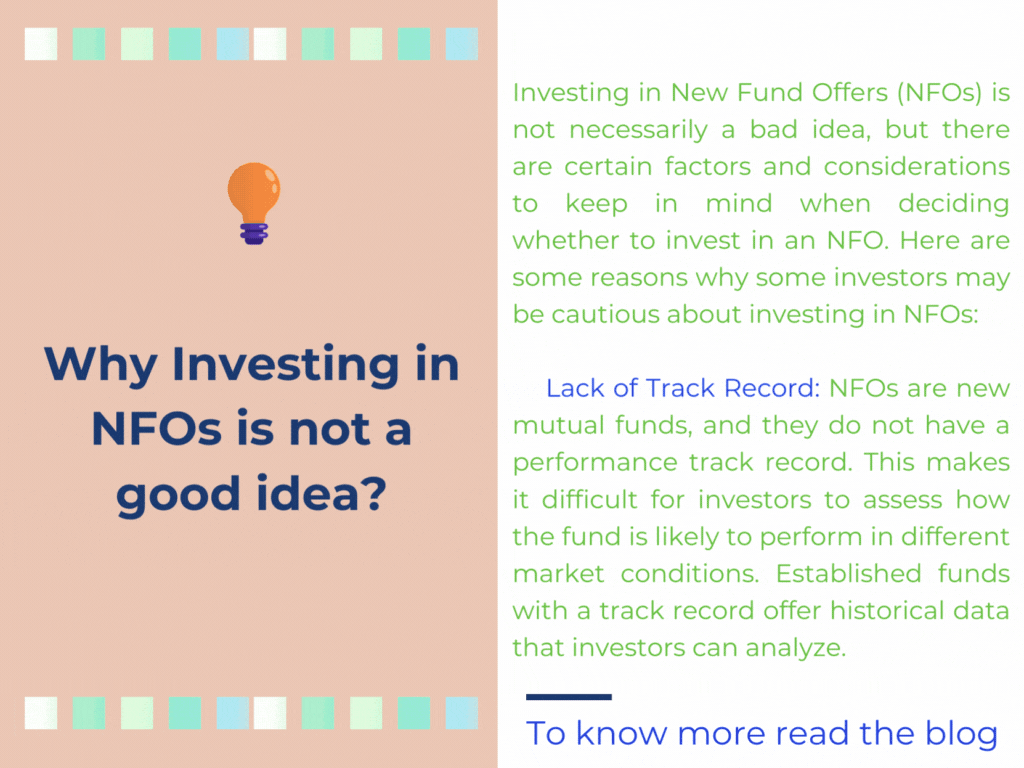Why Investing in NFOs is not a good idea?
Investing in New Fund Offers (NFOs) is not necessarily a bad idea, but there are certain factors and considerations to keep in mind when deciding whether to invest in an NFO. Here are some reasons why some investors may be cautious about investing in NFOs:
Lack of Track Record: NFOs are new mutual funds, and they do not have a performance track record. This makes it difficult for investors to assess how the fund is likely to perform in different market conditions. Established funds with a track record offer historical data that investors can analyze.
Uncertainty: Investing in an NFO involves a level of uncertainty because you are essentially buying into a fund without knowing how it will perform. Established funds have a performance history that investors can use as a reference point.
Limited Information: NFOs often have limited information available at the time of their launch. Investors may not have a complete picture of the fund's investment strategy, portfolio holdings, or the experience of the fund manager.
Fund Manager Experience: The fund manager's experience and track record may not be well-known, especially if they are new to managing mutual funds. Established funds typically have experienced fund managers with a track record that investors can assess.
No Established Reputation: Established funds have a reputation in the market, and their performance is often scrutinized by investors and financial experts. NFOs do not have an established reputation, making it harder to gauge their credibility.
Lower Liquidity: NFOs may have lower liquidity compared to popular existing funds. This can make it more challenging to buy and sell shares if needed.
Asset Gathering Objective: NFOs are often launched with the primary goal of gathering assets under management. The fund company aims to attract investors to the new fund, and this can sometimes lead to marketing hype that may not be aligned with the fund's long-term performance.
Higher Expenses: Some NFOs may have higher initial expenses, including sales charges and fees, which can eat into your returns compared to established funds.
It's important to note that while investing in NFOs carries certain uncertainties, they may also offer unique investment opportunities, especially if the fund's investment strategy aligns with your financial goals and risk tolerance. Some investors may choose to invest in NFOs if they believe in the fund manager's expertise or if the fund offers a strategy that is not readily available in existing funds.
Before investing in an NFO, or any mutual fund for that matter, it's essential to conduct thorough research, read the offer document carefully, understand the fund's investment objectives, assess the fund manager's experience, and consider your own investment goals and risk tolerance. Additionally, you may want to consult with a financial advisor who can provide personalized guidance based on your financial situation.


